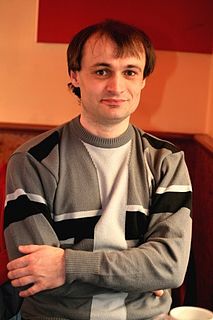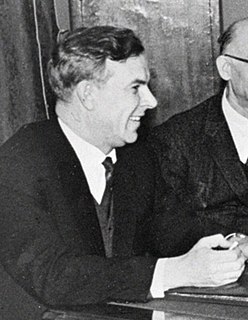A Quote by Paul Craig Roberts
The Soviet Union was a partial check on capitalist looting in the 1950s, 1960s, 1970s, and 1980s. However, with the Soviet collapse, capitalist looting intensified during the Clinton, Bush, and Obama regimes.
Related Quotes
This much I would say: Socialism has failed all over the world. In the eighties, I would hear every day that there is no inflation in the Soviet Union, there is no poverty in the Soviet Union, there is no unemployment in the Soviet Union. And now we find that, due to Socialism, there is no Soviet Union!
In the wake of the collapse of the Soviet Union, everyone in America assumed that there would be wars to follow - wars over the reunification of Germany, over the nations within the sphere of Soviet influence, and more. There weren't, because George H. W. Bush's policies and diplomacy prevented that.
Back in 1956, we signed a treaty and surprisingly it was ratified both by the Supreme Soviet of the Soviet Union and the Japanese Parliament. But then Japan refused to implement it and after that the Soviet Union also, so to say, nullified all the agreements reached within the framework of the treaty.
KGB was inseparable part of the Soviet Union and the whole structure of the Soviet society. We believe that the achievements of the Soviet Union and of the Soviet society, it's main achievements until the split in 1991, it was at the same time the main achievements of the KGB, because it was working for the same cause.
You know, we did a good job in containing the Soviet Union, but we made a lot of mistakes, we supported really nasty guys, we did some things that we are not particularly proud of, from Latin America to Southeast Asia, but we did have a kind of overarching framework about what we were trying to do that did lead to the defeat of the Soviet Union and the collapse of Communism. That was our objective. We achieved it.





































